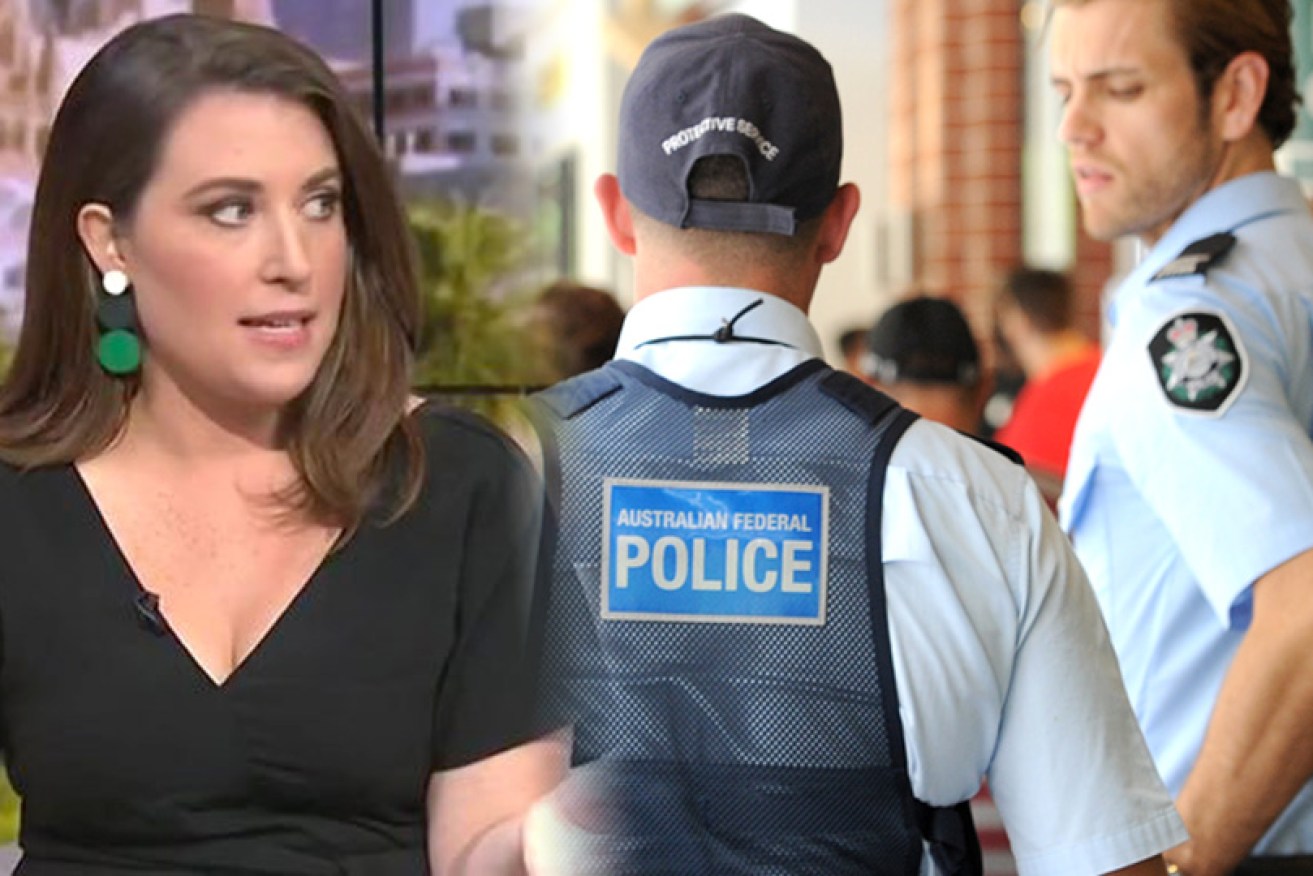Journalist’s home raided over alleged national security leak


News Corp journalist Annika Smethurst is no wiser about the fate of her seized documents. Photo: AAP/Twitter Photo: AAP/Twitter
Federal police officers have raided the Canberra home of News Corp journalist Annika Smethurst in what her employer described as a “dangerous act of intimidation” after she published a story about proposed new spy powers.
The AFP confirmed on Tuesday that the raid, which relates to a story published more than a year ago in News Corp’s Sunday newspapers, followed the execution of a warrant granted by an ACT magistrate.
“The matter relates to an investigation into the alleged unauthorised disclosure of national security information that was referred to the AFP,’’ the statement said.
“Police will allege the unauthorised disclosure of these specific documents undermines Australia’s national security.
“No arrests are expected today as a result of this activity.”
In a statement, Ms Smethurst’s employer, News Corp, described the raid as a “dangerous act of intimidation” that was “heavy handed”.
“The raid was outrageous and heavy handed,” a spokesperson said.
“News Corp Australia has expressed the most serious concerns about the willingness of governments to undermine the Australian public’s right to know about important decisions governments are making that can and will impact ordinary Australian citizens.
“What’s gone on this morning sends clear and dangerous signals to journalists and newsrooms across Australia.”
News Corp said Ms Smethurst had complied with the AFP warrant to access her phone, computer and home. She declined to answer questions apart from confirming her identity.
This is the original story. The documents are marked secret: AUSTEO. That means for Australian Eyes Only https://t.co/Nfu9u0QBAo
— Samantha Maiden (@samanthamaiden) June 4, 2019
The original story featured photographs of of top-secret correspondence marked AUSTEO – for Australian Eyes Only.
It revealed the secretary of the Department of Home Affairs, Mike Pezzullo, had written to Defence Secretary Greg Moriarty outlining a plan to potentially allow government hackers to “proactively disrupt and covertly remove” onshore cyber threats by “hacking into critical infrastructure”.
When the story was published last year, Home Affairs Minister Peter Dutton described as “nonsense” the idea that Australia’s spy agencies would access emails and bank records without a trace.
The story had suggested that, to tackle cybercrime and cyber hackers, authorities wanted new powers to access intelligence onshore and attack the infrastructure they use.
Asked about the report, Mr Dutton disputed the detail as reported but confirmed discussions were ongoing.
“We are concerned about threats to our banking system, by both state and non-state actors, both onshore and offshore. Not just our banking system, but our electricity grids. We’re worried about obviously foreign influence into elections,” he said in April 2018.
“But, as for some claim that there’s going to be some spying taking place on Australian citizens, it’s complete nonsense. If there was to be any look at ways in which we could try and address the cyber threat more effectively, it would be accompanied by the usual protections, including warrant powers either with the Attorney-General or with the relevant justice, whatever the case might be.”
“If we had a capacity to disrupt, for example, the live streaming of children being sexually exploited, would we explore ways that we could do that within the law? Of course we would.”
At the time, Mr Pezullo also discussed the issue in Senate estimates.
“Without confirming or denying the existence or content of the specific documents which the correspondent claims to have seen, I can inform this committee that I have not proposed, nor would I ever propose, that ASD’s powers be expanded in the way described in this false reporting,” he said.
“The only matter in issue, in terms of potential new powers and functions, as the Minister for Home Affairs has since indicated, is whether ASD’s capabilities could and should be employed in the disruption of cybercrime where the whole, or parts, of the relevant cyber network are hosted on Australian telecommunications infrastructure,” he said.
“And secondly, whether ASD’s capabilities could and should be employed in the active defence of certain critical national networks.”
Mr Pezzullo said he would never support “unchecked data collection powers in relation to Australian citizens”.
He also said a criminal investigation into the leak to Ms Smethurst was underway.
The decision to raid a journalist’s home over national security reporting is rare but not unprecedented.
In 2008, the AFP raided the home of Canberra Times’ journalist Philip Dorling. They seized Mr Dorling’s laptop, a hard drive from a second computer and searched his roof cavity and garbage.
More recently, in October last year the AFP raided the Department of Home Affairs in Canberra to establish the source of leaks against Mr Dutton in relation to his ministerial interventions to save several foreign au pairs from deportation.
In April last year, the AFP also raided the home of Tax Office whistleblower Richard Boyle in a warrant that specifically referred to Four Corners and Fairfax reporter Adele Ferguson.








